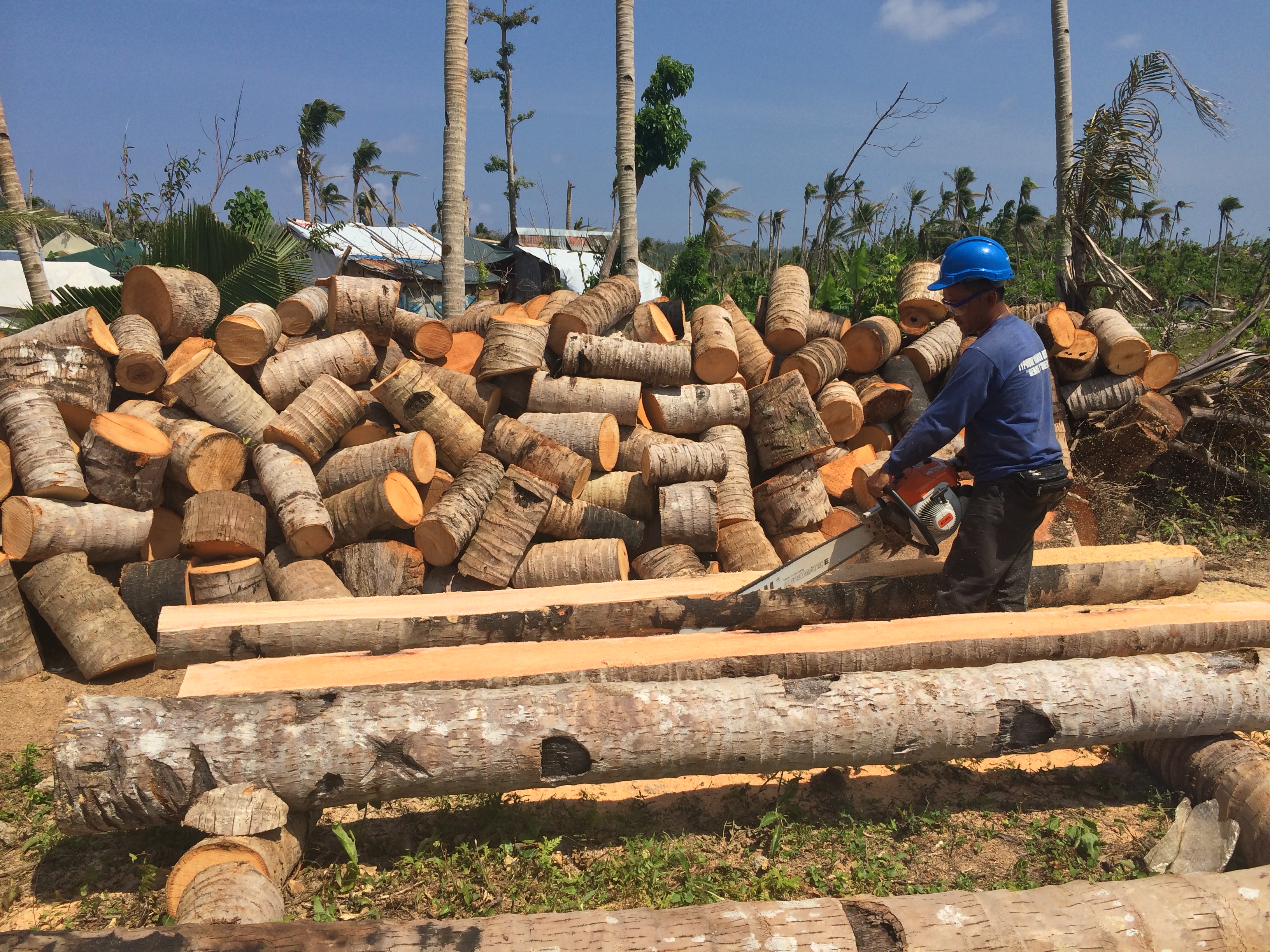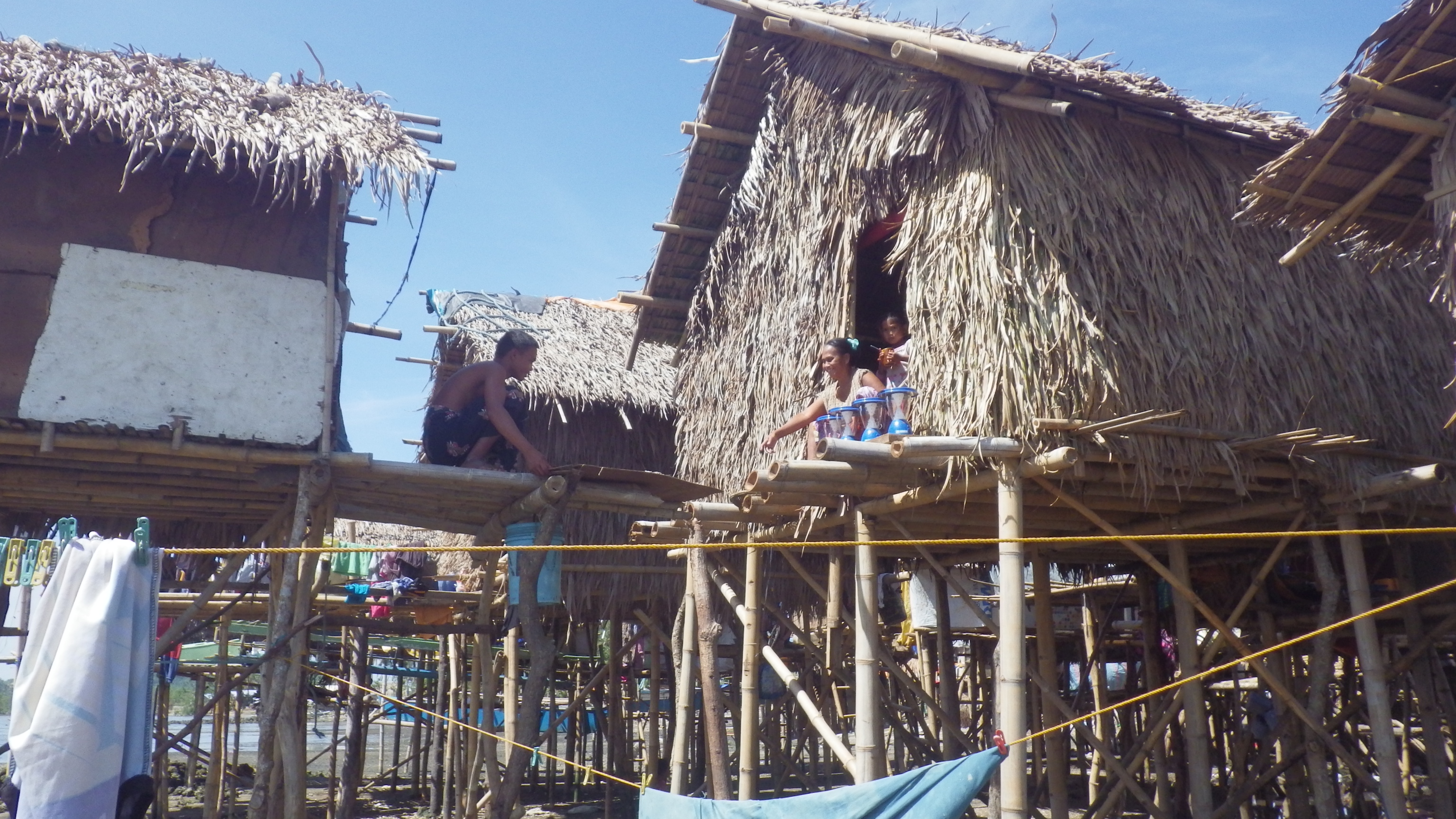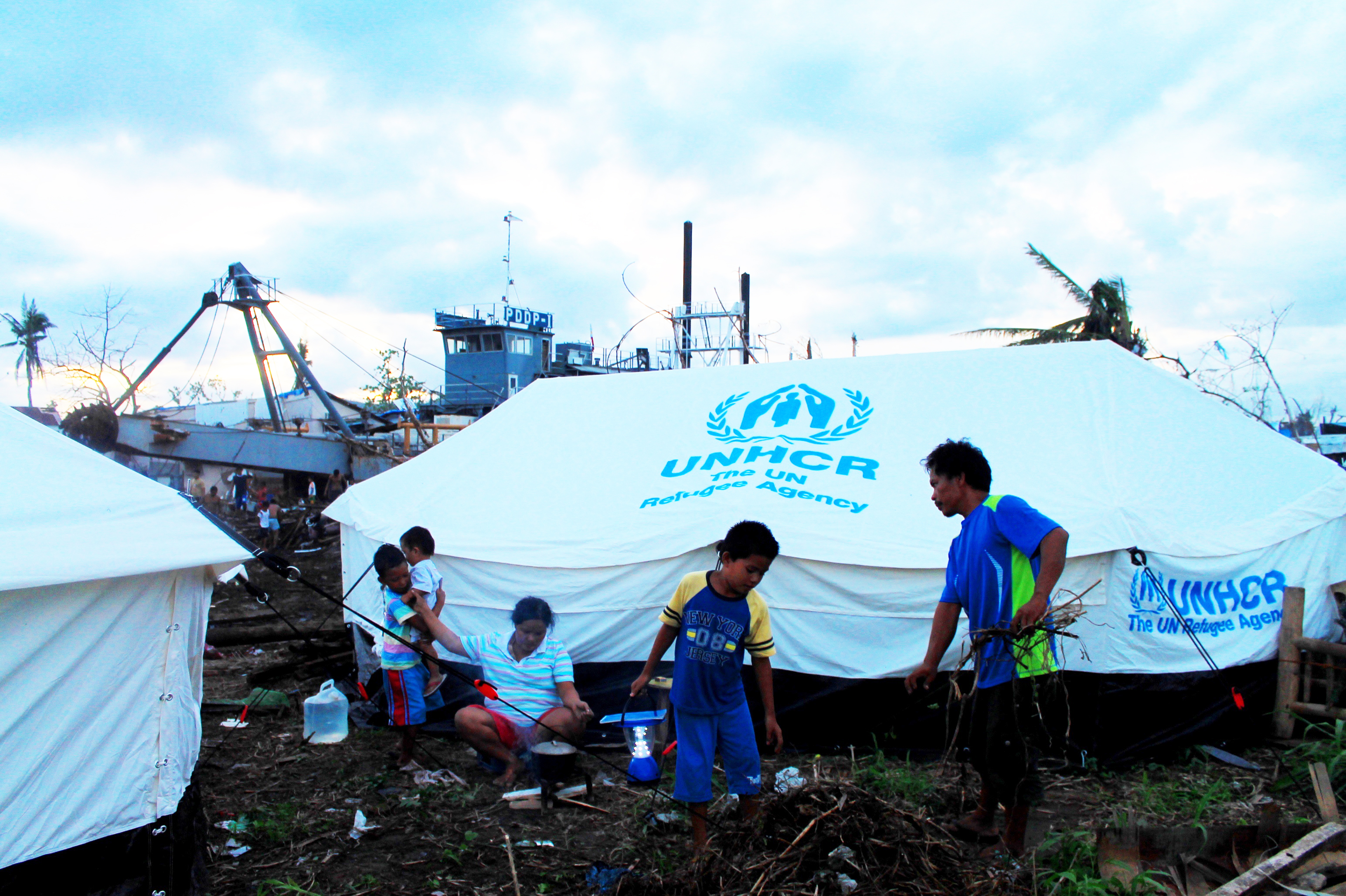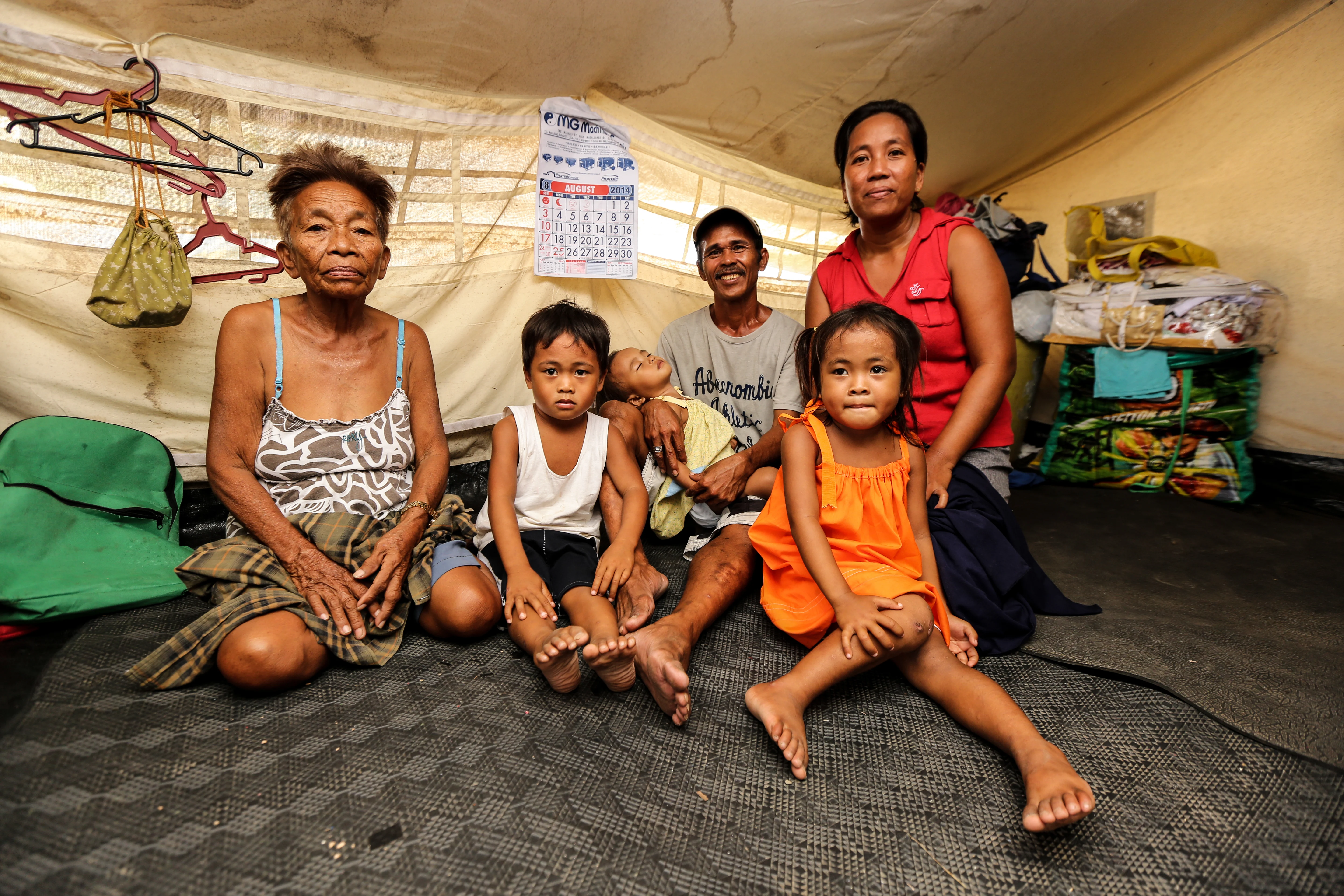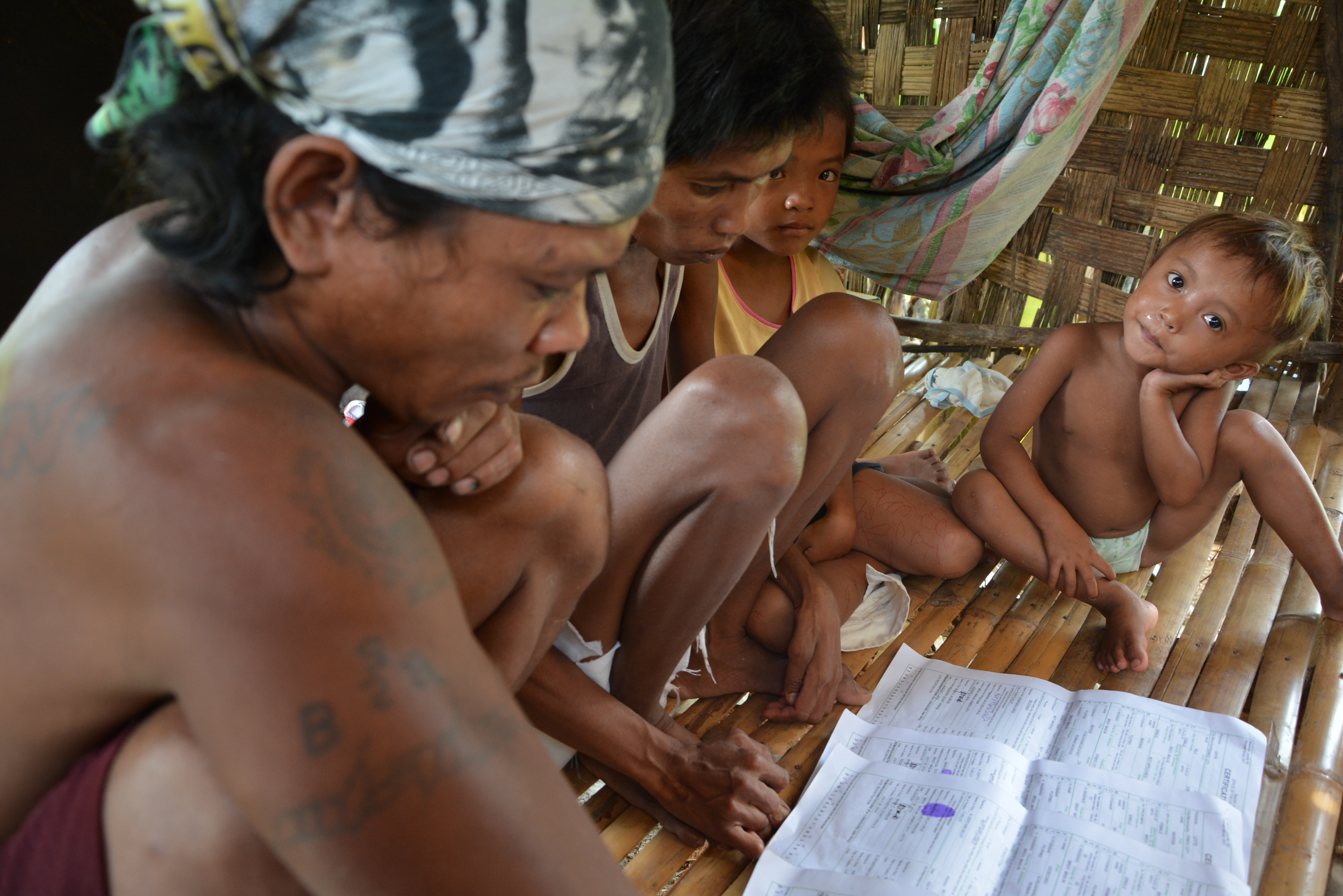Typhoon Haiyan: Seeking Salvacion with a little help from family and friends
Typhoon Haiyan: Seeking Salvacion with a little help from family and friends
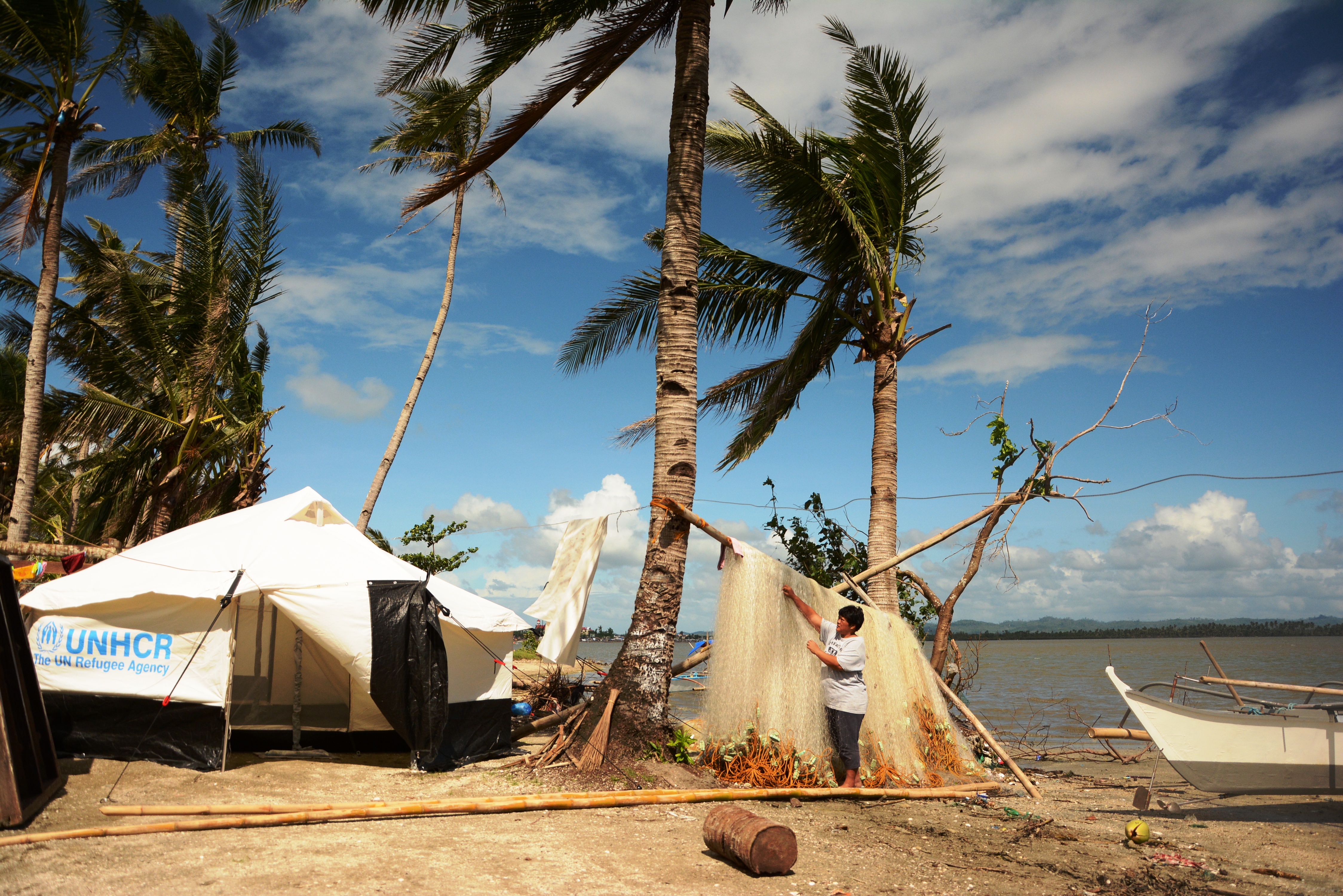
SALVACION, the Philippines, January 21 (UNHCR) - For most Filipinos, families are the fabric of life. On the day Typhoon Haiyan swept through the Visayas region of eastern Philippines, Elma Marcha felt her world unravel as she was forced to choose between saving her parents and her daughter.
In the early morning of November 8, Elma, 41, had decided to stay at their house on the remote island of Salvacion in Samar province together with her parents and her 13-year-old daughter Rosarie. Her husband and three other children were evacuated to a community building nearby.
When the 17-foot storm surge hit their home shortly after, Elma carried her parents in her arms, frail and shivering, and paddled their way through the rising water. They begged her to let go, saying "Save your daughter" before they were engulfed by another surge of water.
"There was no room for dilly-dallying in what seemed to be like an apocalypse. I had to look for Rosarie who does not know how to swim," said Elma, recounting the moment she had to swim to the girl, fighting against the rush of water and debris.
Elma sustained cuts and wounds in the wake of the one of the strongest typhoons ever to hit land. "I never had the time to cry or absorb what happened to my parents," she said, explaining that her immediate concern was to find her husband and other children.
She found them taking refuge in a nearby church. All were safe except for her parents, still missing two months later.
Survivors returned to a scene of utter destruction, with no food and water for three days. Aid delivery took time largely due to the community's remote island location and the fact that major roads and passages were blocked by uprooted coconut trees and mounds of debris.
As the co-lead of the Protection Cluster in the inter-agency response to Typhoon Haiyan, the UN refugee agency (UNHCR) has been assessing the needs and providing relief supplies to far-flung areas like Salvacion, located in the Concabato Bay opposite Tacloban city.
The village chief, Antonio Dizon, provided two boats for the UNHCR team to transport 300 family tents, 100 plastic sheets, 20 plastic rolls and 300 fleece blankets to the area. "The team braved the seas to bring aid to the 300 homeless families who have endured harsh conditions in the island Barangay for almost a month," he said.
But the job is not yet complete. "Now that the tents are set up, we are expediting the delivery of 380 solar lanterns. Remote areas like this need temporary lighting as it will take time for the electricity to be restored here," said Arjun Jain, leading the UNHCR's emergency response in Tacloban.
To date, UNHCR has assisted more than 432,000 people in typhoon-stricken communities with emergency shelter and relief materials. Survivors have now started rebuilding their homes. Some have resumed fishing, a major form of livelihood in Salvacion, signalling a return to normality.
Elma's family returned to what was left of their house, the kitchen area, and were happy to receive the UNHCR supplies in December. "The gesture from UNHCR was like a Christmas present to us," said Elma. "In the morning, my husband fixes our house and at night we sleep comfortably in the tent that can accommodate two families."
Besides meeting the immediate needs, UNHCR will be setting up free mobile birth registration with the Department of Social Welfare and Development to address the loss of civil documentation among survivors.
For Elma who lost her family's civil documents, this will save what's left of her meagre resources as she will not have to pay the legal fees normally required to retrieve copies of their birth certificates from the municipal civil registrar or the National Statistics Office.
She says the help her family has been getting from the government and humanitarian organizations has restored their self-worth and put them back on their feet. Despite her impoverished and modest household, Elma maintains she is still fortunate that her husband and children survived what she calls the longest five minutes of her life.
"We've accepted the fact that my parents are gone," she said. "I still take strength from my husband and children - they are what I live for. It's difficult but life goes on for us here. A new year is always a new start."
By Keneath Bolisay in Salvacion, the Philippines

